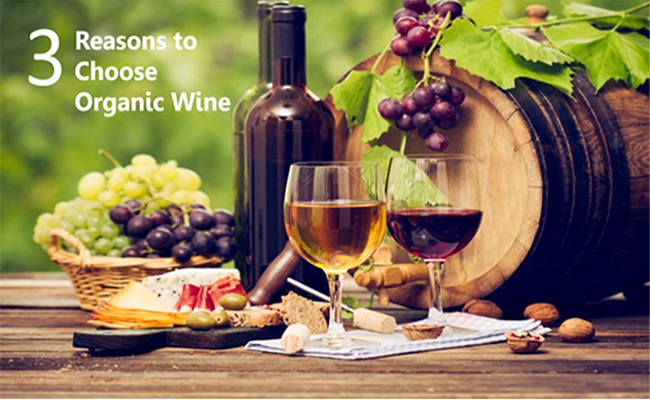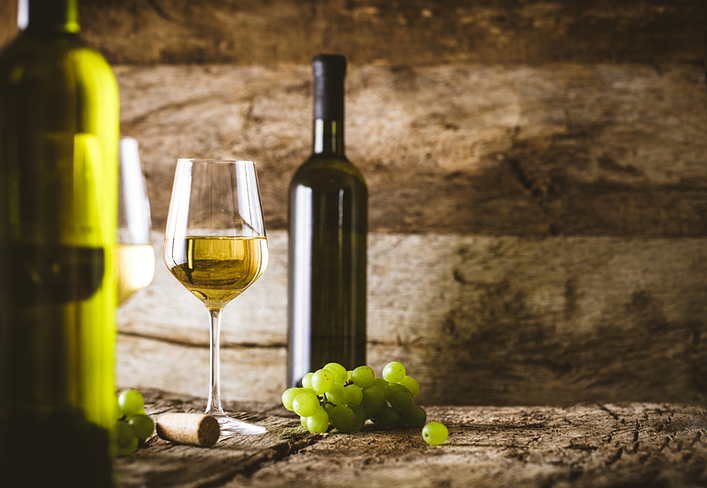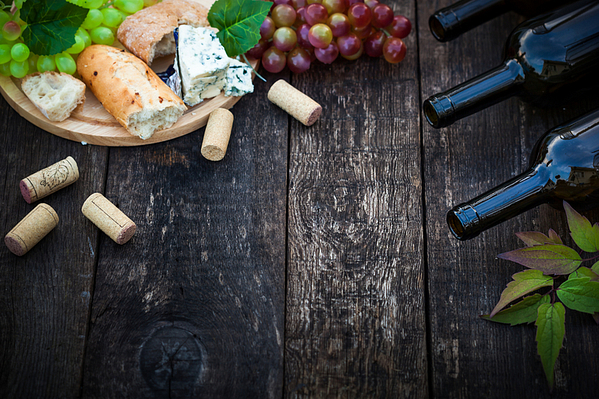[Guest Post by Tess Bercan]
Have you noticed a trend in your liquor store recently?
It seems that more and more little green labels are popping up, directing the consumer to organic wine selections. Alain Cloutier, wine buyer for the popular Granville Liquor Store in Vancouver, Canada, says that he noticed a definite growth in demand for organic wine in 2014 and 2015. However, he does caution that, like anything, consumers should be educated on what they are buying and not just fall into purchasing something simply because it’s become a trend.
Perhaps it’s worth taking the time to understand organic wine a little more deeply — and that understanding begins with the label.
Label Clues
There are two crucial labels to understand when looking for a cleaner glass or wine. They are “organic” and “made from organic grapes”.
According to The Organic Consumer’s Association, these are the basic definitions of each in the United States:
- Organic: To be labeled organic or to have the USDA stamp, the wine has to be made from grapes that have been grown organically. Organic wine cannot have any added sulfites. In addition, the total sulfite level has to be less than 20 parts per million.
- Made from Organic Grapes: This wine is also made from organic grapes, but may contain added sulfites.
Why do wineries add sulfites? Simply put, sulfites are added in order to help preserve wine and prevent oxidation and bacterial spoilage.
A vineyard may indeed grow all of their grapes organically, but in America, if sulfites are added, then the label of organic cannot be used. The issue is further complicated when one notes that some sulfites naturally occur from the yeast fermentation during wine making.
As pointed out earlier, it seems that customers are on the hunt for healthier or cleaner vino drinking alternatives. So what are the benefits that come with purchasing wine that is labeled as organic?
Benefits of Choosing Organic Wine:
- Avoid Sulfites: If you are a person that is allergic to, or reacts badly to sulfites, you can sidestep them all together with 100 per cent organic wine.
- Avoid Genetically Modified Organisms: Conventional wine may or may not use genetically modified yeast. The Organic Consumer’s Association explains that alcoholic and malolactic fermentation of wine is usually a two-step process. However, this GM yeast (ML01) allows fermentation to happen in only one step. This may be a convenience to the wineries that choose to use it, but a hindrance to those who want to dodge GMOs. A simple solution to this is to stick to certified organic wine. Wine that is labeled USDA organic is prohibited from using or containing GMOs.
- No Synthetic Toxins: Certified organic wine cannot use synthetic fertilizers or pesticides to fertilize grapes. Organic vineyards like the Kelowna-based Summerhill Winery use the following methods:
- compost, green manure and crop cover for fertilization instead of synthetic fertilizer or non-organic compost (which may contain heavy metals or pharmaceutical residues).
- graze chickens under vines to keep insects in check rather than insecticides.
- mechanical weeding in place of herbicides.
In summary, less use of synthetic pesticides and insecticides means a healthier and cleaner glass of wine for you, not to mention the environment.
_____________________________________________________________________________________________________________________
Author Bio:
Tess Bercan is an educator and avid writer. She continually strives to explore and learn about health, organics and positive living. She received her degrees from the University of Calgary.
You can learn more about Tess at www.tessbercan.com
Article Sources:
- https://www.organicconsumers.org/news/organic-wine-booming-across-us
- https://www.organicconsumers.org/old_articles/Organic/OrganicWine.php
- https://www.organicconsumers.org/news/organic-wine-booming-across-us
- http://winefolly.com/update/organic-wine-vs-non-organic-wine/
- https://www.ams.usda.gov/rules-regulations/organic/labeling http://organicvineyardalliance.com/2013/06/08/gmos-in-wine/
- https://www.organicconsumers.org/news/dangers-genetically-modified-yeast-wine
Photo Credit:
“Vinice” (CC BY 2.0) by Lukáš Jirovský
You might be interested in:
How to tell if something is Organic and, perhaps m...
Ever wanted to make your own healthy, preservative...
#Wisdom #Truth #USDA [Thanks Ash].




